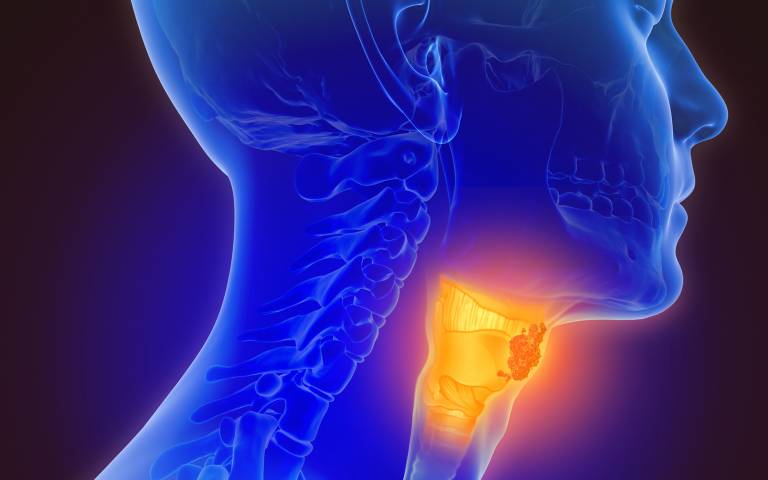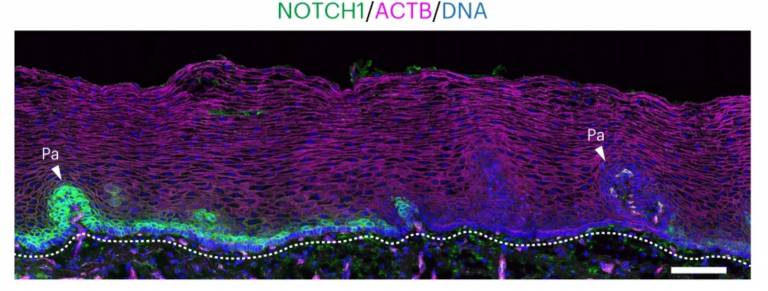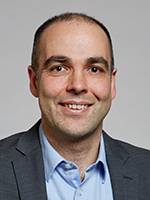World Cancer Day 2023: New research into Notch1 mutations could improve diagnosis and therapy
2 February 2023

Notch1 mutation drives clonal expansion in normal esophageal epithelium but impairs tumor growth is the latest work and third in a trilogy of papers that reveal the complex changing fitness landscape of cancer. Sequencing of tumours of the squamous oesophagus you find that Notch1 is apparently under selection and widely mutated. These results show how such observations may be deceptive and how the fitness landscape of a single gene may vary through the stages of carcinogenesis. A deeper awareness and consideration of this process offers the potential to improve our understanding of cancer progress and with it improve diagnosis and therapy. Modelling supervised by Dr Ben Hall (UCL Medical Physics and Biomedical Engineering) and performed by then PhD student Michael Hall enables unique insights into these fundamental processes in the earliest stages of cancer.

Image: Cyrosection of human esophagus. NOTCH1 (green) stains basal and lower suprabasal layer cells, expression is lost in regions of the esophagus. F-actin, magenta; Pa, papillae. Dotted line indicates epithelial submucosal boundary. Image representative of three donors. Scale bar, 100 µm.
In the first paper, we saw how Notch1 mutations dominate models of healthy aging tissue through fitness advantages, explaining observations in sequencing of human tissue. Working with data from experiments performed by our collaborators, we used computational models to show how clones that had lost Notch1 activity spread throughout the tissue due to selective advantage. This continues until they collide with clones of similar fitness, at which point they revert to neutrality. All throughout, the tissue remains morphologically normal despite the intense competition going on within.
Our second paper showed that these fit clones can also outcompete emerging tumours in the model tissue. This further supports a key implication of the previous paper that cells bearing a Notch1 mutation could outcompete cells bearing cancer promoting mutations, and therefore act as a protective mechanism against cancer. It however left unanswered whether cells which had lost Notch1 are more likely to develop into a tumour due to their fitness advantage.
This new work answers this question, showing that though morphologically normal cells that have lost the Notch1 gene are highly competitive, the same mutations are unfit in tumours. We find that the relationship between mutation and growth advantage is dependent on the environment the cell is growing in. This observation reinforces the concept that despite its frequency in tumours, the loss of the gene offers a tumour protective effect. Moreover the frequency the mutation is observed in human tumours may reflect not the propensity of the mutation to lead to cancer, but instead the fitness of the mutation at in the healthy tissue. This raises important questions about how the fitness of mutations at different stages of the cancer lifecycle may appear in sequencing studies of tumours, and whether what appear to be weak drivers of cancer development might be exploitable drug targets or biomarkers in future.
Read more about Ben's research on MEDPAGETODAY What Does This Biological ‘Switch’ Imply for Patients with Certain Blood Cancers?
Meet the expert
 Dr Ben Hall, Principal Research Fellow
Dr Ben Hall, Principal Research Fellow

Ben is a Royal Society University Research Fellow working at UCL Medical Physics and Biomedical Engineering. His research focuses on understanding the decision-making processes of cancer using computational models of how healthy cells respond to their environment, and how this goes wrong in the early and later stages of cancer development.
With a long history of major breakthroughs, UCL is home to one of the largest concentrations of cancer specialists to be found anywhere in the world. On World Cancer Day 2023, find out more about UCL’s world-leading research on cancer at the UCL Cancer Institute
 Close
Close

